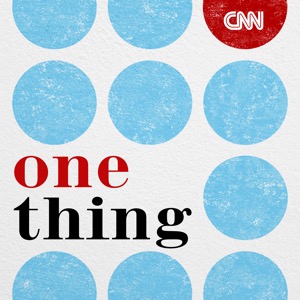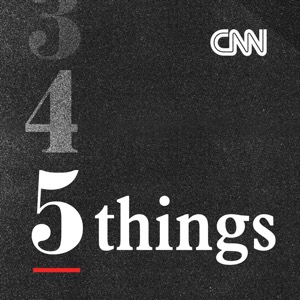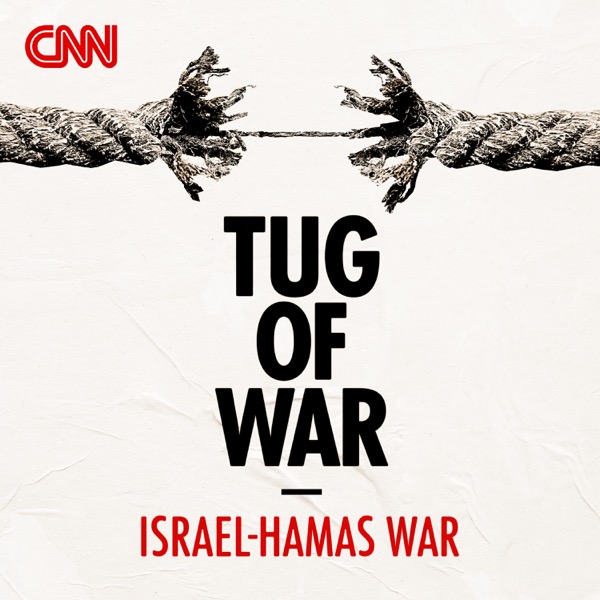Secretary of State Antony Blinken
00:00:03
Good evening everyone.
U.S. Secretary of State Antony Blinken was in Israel the other day, his seventh trip since the Hamas attacks on October 7th. And he said it appears Israel is making good on a promise to get more humanitarian aid trucks into Gaza.
Secretary of State Antony Blinken
00:00:20
They went through Erez, for the first time today. And that's very important because that's direct access to the north of Gaza.
The new land crossings are being opened. In addition, that floating pier being built by the U.S. is more than half finished. But the stories of hunger we're hearing out of Gaza, they don't really reflect that optimism.
Spending hours a day to get through a checkpoint is not good enough. Being able to only use checkpoints for a short period of the day is not good enough. We have enough food. It's do we have enough access.
This child says, I haven't been given a meal for a month because the kitchen team was struck. We only had canned food.
It seems like these that have outraged leaders in the region least of which being Iran, no friend to Israel in the best of times. But its attack on Israel last month was different.
We're following major breaking news over the skies of Israel. A widescale aerial assault is going on right now, with waves and waves of drones and missiles streaming in from Iran, directly from Iran. Our team on the ground.
Even though Israel's military says 99% of the projectiles were shot down, this was a direct assault. And there's real fear about what would happen if tensions were to flare again.
The other thing that the Iranians have said is that they didn't actually send their most modern missiles and drones today.
CNN's Fred Pleitgen takes us inside the Iranian capital of Tehran. Fom CNN, this is Tug of War. I'm David Rind.
So it seems that cooler heads have kind of prevailed after that tit for tat between Iran and Israel. And as we sit here on Wednesday, there has been no more action since Israel's limited strike inside Iran about two weeks ago now. But since you're now in the country, does it feel on the streets like the heat has been sufficiently turned down?
I think that a lot of people are still quite nervous, and I think that a lot of people here, the population of Iran, still feel that the situation in general has escalated because I think one of the things that we saw when things were still really heated up was that the Iranians said that the entire equation had changed for them now in the Middle East, that, if Israel does anything anymore, if there's any more actions from Israel, that the Iranians would hit back hard. And of course, that's a pretty big promise to make in this region, especially with so many US troops also in this region, but of course, also with the military that Israel has. But the Iranians, they certainly are quite bullish at this point about their military capabilities.
Can you show me? It's never seen the shahed warhead before.
So we got, actually pretty good access, to an Iranian Islamic Revolutionary Guard Corps base. This is basically their most elite force that they have. And one of the things that's been very important for the Iranians have been developing their missile program and their drone program, because Iran is under massive sanctions. So they can't really buy modern military gear. So they develop a lot of stuff of their own, right? And missiles and drones really play a big role for them to try and project their power. So we saw a lot of that.
Accurate. Less than five meters.
They have a wide array of missiles, and a lot of them really look like, you know, the kind of NASA rockets from the 70s and 80s, you know, like big, very tall rockets with really big payloads also. The Iranians say that some of these can fly about, you know, a thousand miles, maybe longer. So they basically look like space rockets. There's some that are smaller that sort of look like, you know, the kind of ballistic missiles that we're used to. And then there's cruise missiles that kind of look like little planes with, with, with really short wings. The thing that really interested me a lot was, their drone program. Also, they gave us some insight into that. There's some of the drones that actually look like stealth bombers. But there's other really cheap ones called the Shahid. 136 that the US also alleges that the Iranians have given to the Russians for use in Ukraine, which the Iranians deny. But, you know, those look really cheap. It's very they look they're big, but they also they look quite light. And they can't land. So they're they're one way drones for for suicide mission.
I think it's important to remember for people. Right. These aren't like the little hobby drones that you're sending up at the park. No, these these look like little planes, right?
They look like. They look like little planes. And in some case, big planes. I mean, some of them are easily the size of, like, a Cessna or even bigger. And some of them, the Iranians can say, say, you know, they can fly for like 24 hours. So they, they have gotten a lot better as far as their drone capabilities are concerned. And the Iranians have said that over the years they've become a lot more, accurate as far as the missiles are concerned. They've been able to hit further, bigger payloads and of course, also have become more lethal. And I think, you know, one of the things when they did that strike against the Israelis, despite the fact that the Israelis in the US. So they took pretty much all those drones, missiles down. The Iranians still think that that was a success for them to just show the kind of power that they have.
Well, I was going to say, because, you know, the Revolutionary Guard, they wanted to show this stuff off to you. But like, did the general you were talking to realized that, like, 99% of these projectiles got shot down like, this didn't actually work?
Well, I mean, I think that from their perspective, work and work is are relative terms here in the Middle East. I think for the Iranians, the main thing that they wanted to show was that they can hit hard. And one of the things that we have to keep in mind, obviously, you know, if we can believe everybody on all sides, talking and all this, they're obviously all politicians. Yeah. That the Iranians did say that they gave a lot of warning to all the countries in the region, which then obviously would have told Israel and the United States about it. And you did have the US Air Force, the Israeli Air Force, the Jordanian Air Force, the British Air Force and the French Air Force, all in the skies taking these things down. And the other thing that the Iranians have said is that they didn't actually send their most modern missiles and drones over here. They claim that they have different stuff. So for them, I think it was more about trying that really fine line between showing that you have a big stick and at the same time not kicking off a big all out war.
Like, maybe next time we won't give you all that warning and we'll send it anyway, and then we'll see what happens.
And we'll send the real stuff over. Because they said that the that the stuff that they sent now is sort of older stuff.
This is Tug of War. I'm chatting with CNN's Fred Pleitgen, who is in Tehran.
As we wait and see if Israel will go into Rafah. I realize the entire Muslim world has really been galvanized by what is going on in Gaza. So what does that anger look like in Iran?
I think in Iran, the anger is projected very much by the leadership of this country. One of the things that was really surprising for us. Is how the leadership of this country has sort of taken up this cause and is trying to sort of push it. The president of the country, the foreign minister of the country, a lot of the military are the leaders of the country, have not only obviously ripped into Israel and the United States and what's been going on in Gaza, but also what's been going on in US campuses is a real big deal here as well. It's something that a lot of politicians do. Oh, huge. Absolutely. There's been demos by conservatives, by hard liners. Follow me, call on us here at Tehran University and other universities as well.
That's all proclaiming solidarity with the protesters, you know, calling out the US government, saying, look, you guys are supposed to be the beacon of free speech. And now look what's going on in America. Yeah, it's a it's a huge deal for the government here.
American students also came out. It's great. We didn't we didn't think that they would come out. But the fact that they came out shows that, you know, we're fighting for the same thing.
Well, it's pretty rich, though, that Iran would be like these protests. Great job. U.S. one their own protests. They crack down harder than almost anywhere in the world.
Yeah. I mean, there is there's some of that, certainly. But the way that the Iranians are trying to frame it is they say, look, you keep lecturing us about what's going on in our country and a lot of other countries as well. And now, look, what's going on in America is essentially sort of the message that they're that they, you know, they're so trying to portray and, you know, it really is all levels of the government that that have taken this on. If you look at some of the Twitter feeds, some of the sort of big politicians here in this country, they they share of the kind of imagery a lot.
And we talk a lot about Iran and the power they exert in the region with these proxy groups. But I realize that Western journalists don't get a ton of access into the country itself. So what is it like reporting in the country?
So reporting in the country is certainly not easy. You know, you need special permissions to go to certain places, but it is doable. And I think one of the things that people would notice if they were able to come here is the Iranians themselves are really nice people, like the folks on the street. I've never seen people, you know, say anything bad to us. Never seen people be aggressive. Tehran itself is a is a very sophisticated city in many ways. Especially the north of Tehran is actually quite wealthy. And yeah, they're very hospitable people. The food is amazing. But at the same time, of course, you know, there is a lot of that tension that you feel in the Middle East also here in the society as well, you know, where people realize that they are at loggerheads with a lot of countries in the region, and of course, also with Israel and, and that and the whole standoff with the US, of course, is something that's been going on for such a long time, that that's really ingrained in, in, in large parts of life here.
Well, yeah, I was going to say, because a lot of the times we see these images coming back from Iran of people chanting and shouting, Death to America. But like, how widespread is that amongst the general population as opposed to the hardliners in the government that obviously hammer that hard?
I think that that's a thing that the hardliners really tried to portray. But among the general society, I think they are now, I wouldn't say laid back about it, but but obviously not as out there as a lot of the hardliners, are. And some of the things that that got projected, especially at Friday prayers and in general, I think that most people here in this country want better relations with the United States. But I think they also want that on their own terms, like they do. They do not want to be told what to do with it. It is it is quite interesting to see the Iranians certainly are, you know, very smart, obviously very independent. Also people who want to remain that way here in the Middle East.
Yeah. Like we saw those protests over the death of Mahsa Amini. A lot of issues for women and of course just economic concerns day to day. Yeah. Fascinating perspective. Thanks, Fred.
Tug of War is a production of CNN Audio. This episode was produced by Paola Ortiz and me, David Rind. Our senior producer is Haley Thomas. Dan Dzula is our technical director. And Steve Lickteig is the executive producer of CNN audio. We get support from Alex Manasseri, Robert Mathers, John Dianora, Leni Steinhart, Jamus Andrest, Nicole Pesaru, and Lisa Namerow. Special thanks to Caroline Patterson, Zara Ullah and Katie Hinman. We'll be back next week on Wednesday. In the meantime, head over to CNN.com or the CNN app for the very latest. I'll talk to you later.




